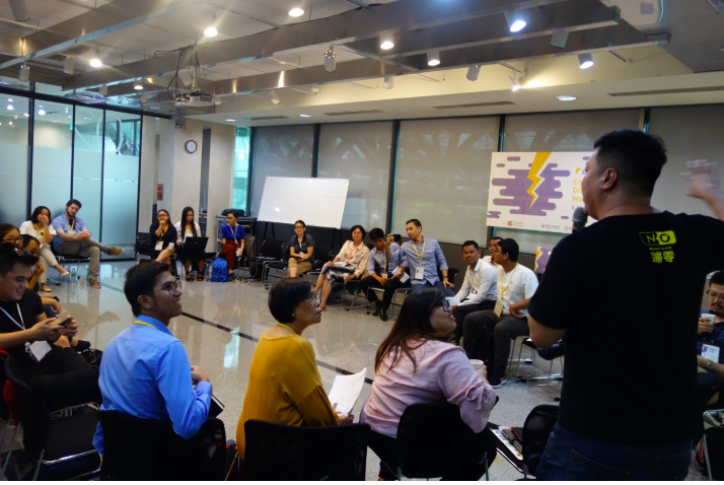
Open Culture Foundation (OCF) is a non-profit organisation founded by members of Taiwan’s open source community. Its main goal is to support local communities in the use of open technologies to promote a more innovative society and participatory democracy.
APCNews talked to OCF’s digital security trainer Pellaeon Lin and cross-field coordinator Keng Lu about their work and their membership in APC, which they recently joined.
APCNews: You work with Taiwanese and international civil society. Can you tell us more about these groups and how you work with them?
OCF: We work with different groups in different ways.
We started working with Taiwanese FOSS (free and open source software) communities in 2014 as fiscal sponsors and we now work with many more FOSS communities, including the Conference for Open Source Coders, Users and Promoters, g0v, Mozilla and OpenStreetMap (OSM). Our work has also expanded to do international networking.
Since 2016, we have been working with civil society groups in the country to protect their digital safety. We recruit volunteers from the tech community and pair them with civil society organisations, and we also collaborate with some of them on freedom of speech, open data and open government campaigns. Most groups we work with are frontline activists from human rights, LGBT and environmental movements.
One goal of OCF is to connect Taiwanese communities with international counterparts, and that’s why we bring community members to conferences like RightsCon, and also bring international communities to Taiwan by holding events here, including the 2018 East Asia Disinformation Workshop, CivicTechFest 2017 and many others.
APCNews: What is the most challenging part of your work? What do you struggle or find obstacles with the most?
OCF: The concepts of digital rights, internet freedom and civic tech are still new in Taiwan. This means we need to put a lot of effort into explaining our work and training new staff, volunteers and trainers rather than directly taking action. Under this situation, our current capacity is still limited.
Also, there is little interaction between different groups and we still have a long way to go. OCF partners with many FOSS communities and civil society organisations; however, those groups are not used to working with each other. In this digital era, when almost every problem requires a digital solution, it will be critical to bring tech communities and traditional CSOs together to fight.
In building connections, our main obstacle is that most CSOs lack human resources and are busy in their routine tasks. Although they agree that forming digital allies is important, their involvement is still limited.
APCNews: Tell us some stories of success. How has your work had an impact in your community?
OCF: During one of our cybersecurity health checks with CSOs, we found their office computer was infected with adware, a sign of bad usage habits. With their consent, one of our volunteers, who works in an IT security company, further analysed the computer and found advanced malware that is used by a famous hacking group hidden in the computer. This is a rare incident that tells us how valuable it is to work with volunteers from the industry.
APCNews: Why did you join the APC network? What do you think you can contribute as a member and what do you expect from APC?
OCF: We joined APC not only because it aligns very well with our goals, but also because APC has a good supporting structure for the members. There are dedicated staff to support exchange between members (holding events, interviewing new members, etc.) and a tech team to maintain the infrastructure, which is also free and open source, which is really important to us.
We contribute to Taiwan’s experience in many ongoing issues, for example, disinformation. In Taiwan we have “Cofacts”, a group of volunteer fact-checkers and online infrastructure (database, API, chatbots) to support them. Cofacts is a project from the g0v civic tech community, which we work with.
As for what to expect, maybe at this stage it is too early to say, because we don’t know everyone very well yet. But if we could say it selfishly, let’s bring more events and people to Taiwan!